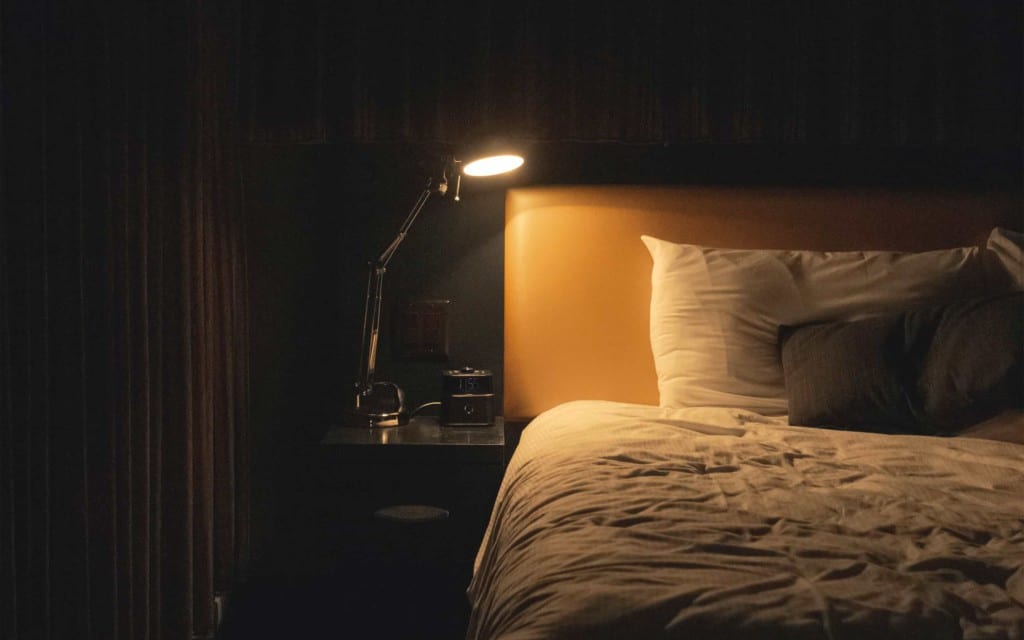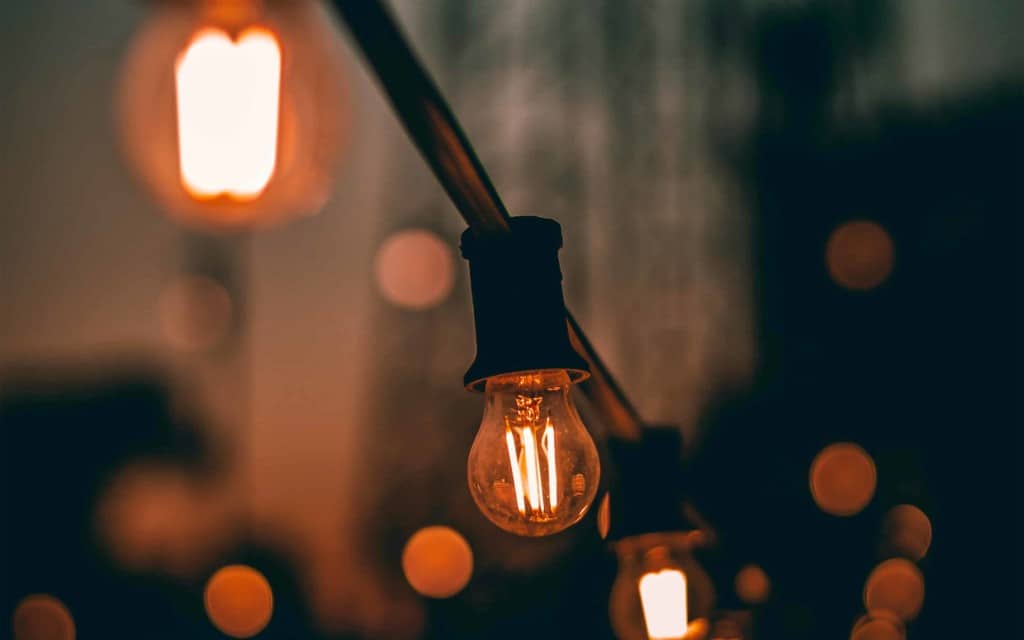Today we’re going to teach you about the hormone melatonin for sleep. The physiological effects of melatonin and how the supplement melatonin works.
We’ll also cover when to take melatonin, and for which sleep disorders to use it.
There are a handful of lucky people out there who can drift off the moment their head hits a pillow. For the rest of us, managing an effective sleeping cycle is easier said than done.
Around 1 in 5 adults struggle with trouble sleeping. Poor sleep has some severe consequences.
So you have probably invested time in optimizing your sleep hygiene to fix your sleep issues. A slightly more “instant” option could be to try a supplement like melatonin.
Using melatonin is a common practice in many parts of the world. People believe that melatonin, similar to the natural hormone we create in our body, can help with everything from sleep to depression management.
However, it’s important to note that melatonin as a sleep aid isn’t always the right strategy for everyone. Here’s the truth about using melatonin for sleep.

What is melatonin, and how does it affect sleep?
Melatonin is a hormone that you naturally produce from the pineal gland in your brain.
You already get a regular dose of melatonin every day. This signals to your body that it’s time to shut down and get your forty winks. Importantly, the production of melatonin isn’t all you need to think about, when it comes to managing sleep.
Melatonin doesn’t regulate your circadian clock (deciding when you need to sleep). That job belongs to the suprachiasmatic nuclei—which is another part of your brain. However, in some cases, taking melatonin to sleep can be an effective way to drift off a little faster and sleep through.
When melatonin in your brain leaves the pineal gland, it automatically pairs up with receptors in the suprachiasmatic nucleus mentioned above. This causes the clock in your brain to slow down, signalling the onset of a sleeping period.
For most people, this process happens naturally, often 14 to 16 hours after you wake up. It’s why you get tired at a certain time each night (in theory).
The melatonin cycle is an essential part of how your brain operates to encourage sleep and rest, and you can boost your melatonin naturally by improving your sleep hygiene, eating certain foods, and getting plenty of exposure to sunlight throughout the day.
For the purpose of this article, however, we’re going to be looking specifically at melatonin as a sleep aid and how it affects your sleep cycle.

Melatonin for sleep: Will melatonin solve your sleeping problems?
Before you start dosing yourself up with melatonin, it’s important to understand how this substance works to improve the sleep-wake cycle.
Taking melatonin to sleep is nothing new. People have been using it around the world for years. It is mainly taken to help with the following sleep disorders.
- jet lag
- shift work sleep disorder
- advanced sleep phase syndrome
- delayed sleep-wake phase disorder
- insomnia
- autism spectrum disorders with sleep problems (children)
Sometimes, even blind people rely on melatonin supplements to make sure that they can maintain a strong sleep cycle, as they don’t have the same visual cues as people with sight.
When you’re using melatonin, you’re introducing a higher dose to your brain than it’s naturally used to. Hereby reducing core temperature, encouraging sleepiness, and helping to encourage longer sleep.
However, keep in mind that the FDA has never actually approved using melatonin as a legitimate strategy for sleep disorders. When taking melatonin you ingest an artificially made hormone, which can be perceived as unnatural by the body.
The effectiveness of taking melatonin to sleep isn’t 100% certain. Although it’s safe to say that this supplement works for some people, experts suggest you shouldn’t hold your breath.
There is no long-term data to suggest that melatonin is a good substance for sleep — or that it’s even completely safe. According to the government’s agency for healthcare research, it’s also difficult to know for certain how melatonin is absorbed and excreted by the body.
So, does melatonin help you sleep?
The jury is still out on that.
Further complicating matters is the fact that the bioavailability of supplements you’ll find in-store and online can vary dramatically. The composition of the pills and liquids you take will also have an impact on how effective your melatonin strategy is.

Natural melatonin vs. supplements and pills
Now, here’s the thing, just because melatonin as a sleep aid might not be super effective, doesn’t mean that you can’t benefit from natural melatonin.
Melatonin is a hormone part of an extremely clever proces. Your eyes register whether the sun is shining or not and sends a message to the pineal gland. When darkness comes, it causes your body to produce more melatonin, increasing the signals that tell you to go to sleep.
That’s why it’s so important to make sure your room is completely dark when you’re going to bed. Melatonin is also linked to the core temperature of your body. If you get that right drop in temperature, the more likely you are to go to sleep.
In some people, taking melatonin for sleep can really help to regulate their natural sleep-wake cycle. However, these pills are often most effective when used to repair sleep after something like jet lag that throws your body out of whack.
You’re usually best of sticking to your own natural melatonin, if you just want to improve your sleep hygiene and don’t have a real sleep disorder.
Taking too much melatonin to sleep, just like relying too heavily on any other sleeping pill, can cause significant problems. Melatonin in excess can wreak havoc on your sleep cycle and cause numerous side effects. This might make it even more difficult to restore your sleep patterns in the long-term.
On the other hand, a naturally high doses of melatonin can be great for your health — leading to reduced risk of eye disease, and even stomach ulcers.
The best way to improve your melatonin is to look for ways that you can update your sleep hygiene. You can expose yourself to melatonin-rich foods — particularly before bedtime.
The best melatonin-rich foods are usually:
- Fruits and vegetables, particularly corn, tomatoes, grapes, olives and cucumber.
- Grains like rice, rolled oats and barley.
- Seeds and nuts like flaxseed, sunflower seats, peanuts and walnuts.

How to use melatonin for sleep
So, how can you safely use melatonin as a sleep aid?
Well, according to experts, it’s best to explore other issues that could be affecting your sleep quality first, like exposure to too much light at night, or drinking excessive amounts of coffee.
However, if you do start using melatonin for sleep, you’ll need to speak to your doctor. Taking into account your natural melatonin production cycle and how your circadian rhythm works.
The more cautious you are with your melatonin dosage, the less likely it is that you’ll fall victim to dangerous side effects.
Just like prescription sleeping pills, your doctor will recommend taking a pill just before you’re about to go to sleep — about 30-60 minutes before in fact. Importantly, you’re not going to take a medicine and crumble into a heap on the floor. Melatonin is more subtle than that.
There’s always a risk that you won’t notice any results from melatonin at all. Some people simply don’t respond well to supplemental melatonin. Ideally, when it comes to dosage, your best bet will be to start as small as possible and work up gradually.
Remember, your body will naturally produce melatonin too. If you supplement with too much too fast, then you’ll start to confuse your system, and could risk over-dosing. Another thing to remember when taking melatonin for sleep, is that timing is key.
If you take melatonin as a sleep aid before it starts to get dark outside, then you risk throwing off your body’s natural cycle. Doctors recommend that any sleep supplement should work with the body’s natural cycle — not against it.
If you’re a shift worker it might make sense to use melatonin after a shift, to get your much longed for shuteye.
If you’re wondering when to take melatonin, then it’s generally a good idea to use it as a cure for temporary sleeping issues caused by a change in your sleep cycle.
For instance, if you’re coming back home after a vacation and you want to avoid the symptoms of jet lag, then melatonin is a great option. It might not be ideal for long-term use, particularly since there’s not much evidence that it’s safe to use for periods over 6 months.

Using Melatonin as a sleep aid: Is it a good idea?
Still wondering, “Will melatonin help me sleep?”
There’s a lot of scientific evidence that suggests that melatonin can help you get to sleep quicker and stay asleep for longer.
In one analysis of 19 studies on people with sleeping disorders, scientists learned that melatonin could reduce the time it took to fall asleep by around 7 minutes. Additionally, the people in these studies also reported a higher quality of sleep.
Using melatonin as a sleep aid can be particularly beneficial for people who have jet lag or who have the above mentioned sleeping disorders.
When your internal clock falls out of sync because of some external factor, melatonin can bring your body and mind back into balance. Studies have found that using melatonin for sleep is very effective at reducing the symptoms of jet lag.
What’s more, melatonin as a supplement can also lead to other benefits:
- Eye health: Good levels of melatonin could support eye health by improving your access to antioxidants that lower your risk of eye diseases.
- Reducing ulcers and heartburn: The antioxidants in melatonin can also help with the treatment of heartburn and stomach ulcers in some patients.
- Limiting the symptoms of tinnitus: This condition is caused by constant ringing in the ears. It’s often worse without background noise — which means that it can make it hard to fall asleep. Melatonin may be able to reduce the symptoms of this condition.
- Reducing seasonal depression: Otherwise known as SAD or the winter blues, seasonal depression affects a huge percentage of the population. However, exposure to extra melatonin could help to limit this condition.
- Early signs of ageing: No-one wants to have to deal with wrinkles and other signs of ageing — but they come for us all. However, a research team from Paris discovered that a treatment of melatonin might be able to reduce the signs of ageing in small mammals.
- Lowering blood pressure: Analysis of randomized controlled trials shows a little lowering of blood pressure in melatonin users.

Does melatonin help you sleep: Melatonin side effects
So is melatonin for sleep all sunshine and better health?
Well, maybe not.
There’s a risk of side effects for virtually any supplement or medication you take. That applies to using melatonin to sleep too.
According to various studies, there hasn’t been enough research available yet to prove that melatonin is safe to take on a long-term basis.
According to Medical News Today, there are various clinical trials that do say you can take melatonin safely for 3-6 months at a time. Other research suggests that giving melatonin to children for sleep can lead to delayed puberty onset.
It’s no secret melatonin for children with autism has been used for years. The research is slowly coming, but in most countries the use is still considered ‘off label’. Again, there’s more research needed here to know for sure.
Even if taking melatonin for sleep is mostly safe, there are some side effects you may fall victim to. For instance, you could suffer from dizziness, nausea, and headaches.
Some research also indicates that melatonin can interact poorly with certain medications, increasing your risk of side effects when taking other drugs too.
There’s a risk that melatonin can reduce sperm motility and count, as well as harming libido — which sucks for that one other thing you can do in your bed besides sleep.
Additionally, in women, large amounts of melatonin may also reduce the blood concentration of reproductive hormones like oestrogen and progesterone.
If that wasn’t enough to worry you, there’s also some concern among the scientific community that exposing yourself to too much melatonin too regularly could prevent your body from making the substance on its own. However, several studies have claimed that this isn’t the case.

Taking melatonin to sleep
Ultimately, it’s difficult to know for sure whether melatonin for sleep will work for you.
The best thing you can do if you’re suffering from problems with your sleeping pattern is to speak to your doctor. Attempting to self-medicate—even with a substance like melatonin—is rarely a good idea.
If you still have questions about using melatonin for sleep, read our other investigative article on melatonin at Siestio.
If you generally want to learn more about sleeping habits, tips, and hacks, check out the other articles available here at siestio.com
Siestio. Sleep matters.
Medical disclaimer
You must not rely on the information provided on our website as an alternative to medical advice from your doctor or other healthcare professionals. For more information read our full disclaimer here.








